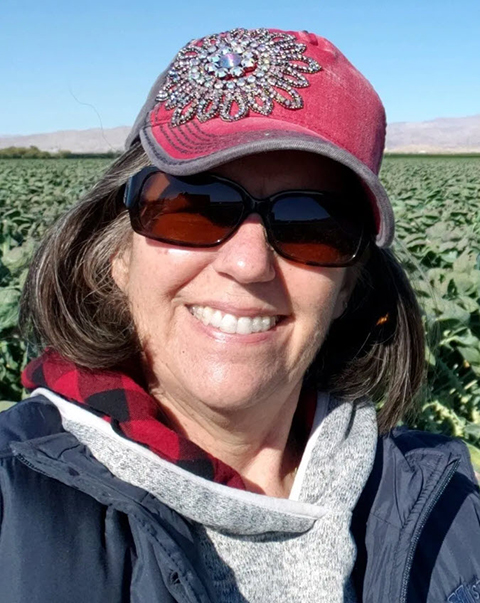By Cory Lunde
UCLA basketball coaching legend John Wooden once said: “It is amazing how much can be accomplished if no one cares who gets the credit.” Though this oft-quoted adage has reached cliché-level status, these words carry tremendous truths for the fresh produce industry and speak to the important roles played by organizations of all shapes, sizes and missions in the collective effort to support the grower community.
We all know the story. Western Growers began nearly 100 years ago as a regional association of Imperial Valley growers fighting rate hikes by the Southern Pacific Railroad. In the years since, our organization has developed into a powerful state and national advocate for Arizona, California, Colorado and New Mexico growers. Even so, our roots remain firmly planted in the local farming communities we were formed to represent.
However, the social, economic and political landscape has grown decidedly more complex and challenging in recent years. Similarly, the fresh produce industry has grown in both size and sophistication, which has pushed the boundaries of our member operations beyond our four home states to dozens of growing regions and hundreds of communities across the U.S. and throughout the world. Consequently, it has become increasingly impossible for any single organization to be all things to all its members, Western Growers included. For this reason, the efforts of regional advocacy groups are critical to providing the frontline, nuanced attention that local issues often require.
Many times, these battles are parochial; the impacts are limited to the immediate communities involved. In other instances, local issues can be a harbinger of things to come for the broader agricultural community, as was the case with the so-called “hero pay” pandemic era ordinance passed by the City of Coachella in 2021. By requiring agricultural employers to pay workers an additional $4 per hour for 120 days, the ordinance placed local businesses at a competitive disadvantage during a time when many growers were already reeling from supply chain disruptions and food service shutdowns.
Janell Percy, Executive Director of Growing Coachella Valley, a regional organization that fosters local support for agriculture, immediately jumped into action and soon brought Western Growers and the California Fresh Fruit Association into the fray. Concerned that similar ordinances could be passed in other jurisdictions, the three organizations sued the City of Coachella. While the lawsuit was ultimately unsuccessful, it likely deterred similar edicts in other parts of the state.
Hero pay is one example of the role regional advocacy groups play in supporting local agricultural businesses. This work is sometimes done independently, other times in tandem with larger organizations like Western Growers. The following is a profile of several select regional advocacy groups serving our members’ communities:
Monterey County
Organization: Sustainable Agriculture & Energy (SAGE)
About: SAGE is an organization of local stakeholders from the Monterey County agriculture and energy industry who come together to advocate policy and inform citizens about the importance of energy and agriculture to the community.
Highlights: SAGE has posted several recent wins locally. SAGE’s ballot initiative ordinance was approved in Monterey County and San Luis Obispo County creating a new fiscal analysis and economic impact report for all municipal ballot measures. Additionally, SAGE successfully advocated against the Monterey Peninsula Water Management District’s buyout attempt of California American Water’s assets. SAGE is also facilitating the inclusion of rural voices and industry input into the Monterey County Climate Action Plan.
Santa Barbara County
Organization: EconAlliance
About: EconAlliance is a cross-industry nonprofit organization that builds awareness, advocacy, support and appreciation for Northern Santa Barbara County key industries and communities. It manages cross-industry initiatives like (e.g., infrastructure, workforce development) and champions the key industry sectors like agriculture that fuel regional economic vitality.
Highlights: EconAlliance routinely facilitates forums, webinars and other activities to advance industry and policymaker understanding of key challenges and opportunities facing Santa Barbara County businesses, including an annual “Growing Possibilities” Ag Forum. The most recent Ag Forum was dedicated to technology and innovation. EconAlliance is also bringing a cross-industry and economic perspective to the ongoing Santa Barbara County Regional Climate Collaborative.
Imperial County
Organization: COLAB Imperial
(The Coalition of Labor, Agriculture & Business)
About: COLAB Imperial, which calls attention to key labor, agriculture and business issues in Imperial County, was formed as an advocacy group to lead the reform of local government. COLAB Imperial supports the protection of property rights; promotes business and job creation; advocates for a fiscally responsible local government; and lobbies for environmental legislation based on sound science.
Highlights: Each spring, COLAB Imperial hosts a breakfast for the community to learn about the status of the Imperial Irrigation District (IID) and the County of Imperial. The President of the IID Board and the Chairman of the County of Imperial Supervisors are invited to give presentations to the COLAB board and membership.
By their very definition, trade associations and other industry alliances are based on the philosophy that there is strength in numbers. This is certainly true when referring to the collective voice of members within an individual organization. But it is equally true in the context of the interconnected web of local, state and national groups dedicated to defending family farmers.
In an era where consumers and policymakers are increasingly disconnected from the source of their food supply, we cannot afford to be solitary in our work as advocates. Instead, as Mr. Wooden might have coached his players, while we may all have different roles to play, we are teammates in a common endeavor. And winning is the only acceptable outcome.





